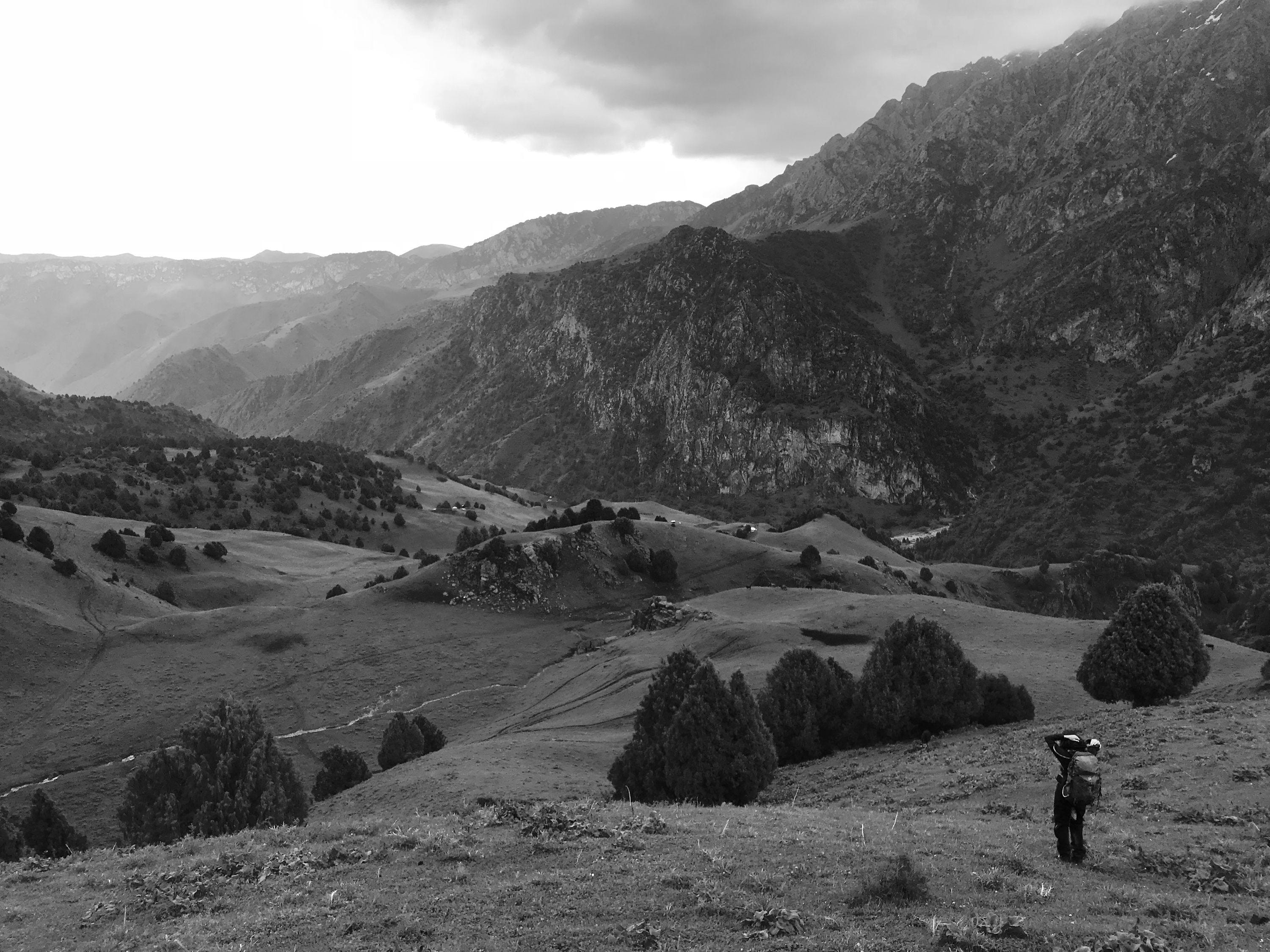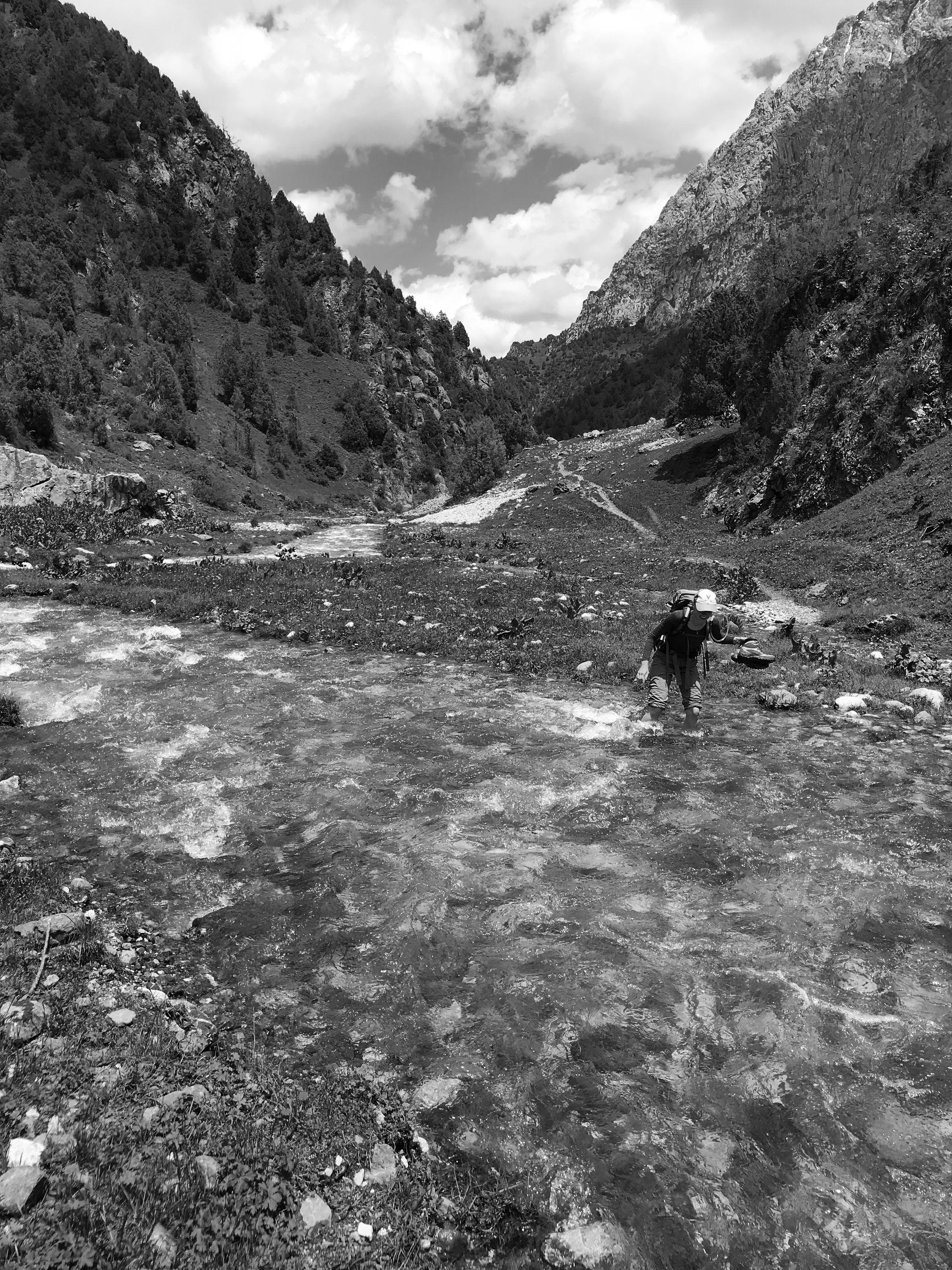Trekking in Kyrgyzstan
A year ago, I couldn’t have spelled Kyrgyzstan.
Yet on June 14th, I was on a Boeing 737, flying overnight from Moscow to Osh. The Aeroflot-provided dinner was much better than YouTube reviewers made me fear.
It was still dark when I touched down. I switched Airplane mode off. Elizabeth had WhatsApp’d me instructions for once I cleared customs:
- Walk outside and go past the first throng of “taxi drivers”
- Say you’re going to the CBT Hostel
- It should cost 250 Som
- I’ll give the driver money once you get here
It wasn’t quite as bad as Bali, but drivers swarmed me. I tried to adjust my Osprey as I negotiated. They were saying it’d be 500 Som. I had my work cut out for me. Elizabeth is a good negotiator.
The sun was up by the time we got into the city. The streets were quiet. Everybody was still sleeping at the hostel. I laid down on a small twin mattress and took a two hour nap.
By 8am, I was up again. Elizabeth had bought a loaf of bread and dried apricots and cheese from a nearby market. We sat around a table drinking tea and eating breakfast. It was sunny, but it didn’t feel hot.
I pulled out my laptop and checked in on things. It was Friday evening back in the U.S. I was going to be completely off the grid for three days. Not an ideal situation if servers crash.
We downloaded Maps.Me and had somebody at CBT give us the mapped pins for one of the horse treks. We were going to hike from one pin to the next into the Kyrgyz backcountry.
We purged what we didn’t need from our backpacks, put on our boots, and walked to the city center. We bought water, some Samsas, and almonds and apricots. Then we made it to the “bus station.” We walked around asking for vans headed to Gulcha.
“Gulcha?”
“Gulcha.”
“Gulcha!”
We found ourselves in the back of a white minivan. After enough people hopped in, we were off.
About halfway to Gulcha, after we’d gotten to the top of a long windy road, the driver pulled over. “CBT, here,” he said. We got out, gave him some Som, pulled out our ponchos, and started hiking.
A few kilometers in, it started to drizzle. We climbed to the top of a mountain pass, the first dropped pin, and took a break to eat some fruit. We had to get to a specific valley and find Auperi, who was the mother of a nomadic family and who would host us in her family’s yurt.
We started to get cold, so we put our packs on and descended over the pass. Cell service clicked off.
The next three days were filled with some of the most beautiful mountains and greenscapes I’ve ever seen. The people we met along the way were unbelievably kind.
Here are four pictures we printed to hang on our wall. They just arrived:



